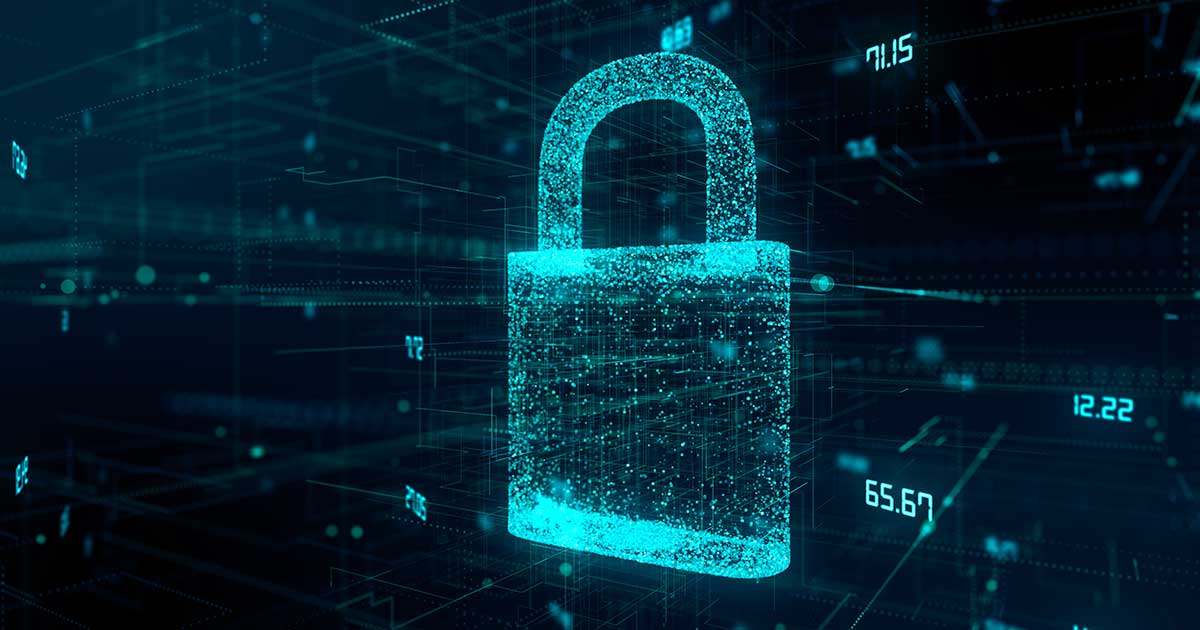Why is Encryption Software Useful?
April 23, 2023, 7 min read
In today’s technological landscape, online snoopers, corporations, and security services threaten privacy and personal data, making data encryption a crucial measure to protect sensitive information. Encryption software uses mathematical techniques to encode user data into ciphertext, which can only be deciphered by authorized parties with the appropriate keys. There are different types of encryption methods, such as symmetric key encryption and asymmetric encryption, with the latter being more secure and widely used. File encryption software provides multiple safeguards for electronic data and ensures compliance with rules, making it the most effective approach for data security. Encryption software is essential for securing sensitive information when transmitting it over the internet and protecting against unauthorized access and data breaches.
The Internet’s once-high reputation is now below zero. Frequently working on behalf of corporations and security services, online snoopers threaten our privacy and personal data. When transmitting money or other confidential files, this is highly problematic.
Easy to solve. You should encrypt your information. To protect sensitive data before sending it over the Internet, you can use any method requiring little more than a simple piece of software. Finally, let’s define encryption software. Find out by reading on!
Methods of Data Encryption Exposed
When information is encrypted before being sent or received online, it cannot be read in transit and remains private. That can be anything from a list of passwords and credit card numbers to a conversation with a coworker at work to a collection of photos of your family that you’ve decided to share with friends and family. File encryption software is needed to prevent unauthorized parties from accessing these files.
Encryption uses mathematical techniques to encode user data so only authorized parties can decipher it.
Data encryption software can transform information from its original form into a seemingly unintelligible string. Since your computer employs a special cypher algorithm to conceal the report, the result is also known as ciphertext. Before being sent across the network, every letter and integer is transformed using this process. The keys are used to encipher the messages. The message is encrypted using a public key by the computer but can only be decrypted with your private key.
Is it clearer now what encryption software is? For example, encryption software is responsible for transforming “plaintext” into “ciphertext” for the encryption to function. Therefore, encryption software is a tool that automatically performs all this work, using cypher keys to encrypt and decrypt whatever data we wish to transport securely. This does not always refer to two different apps. You probably won’t be using an encryption programme very often. On the other hand, the message-sending programme itself will encrypt your transmissions. The most excellent software automates these tasks so the user never has to worry about them.
What is the Function of Encryption Software?
With our understanding of encryption, we can examine the features and functionality of standard encryption utilities.
First, you don’t have to worry about tracking down a different piece of software to help you decode your encrypted information; a single tool can perform both tasks. In addition, several varieties of encryption can be read by various software. This means that as long as they can access the private key, your coworkers can open the files you emailed them without installing the free encryption software.
If you want to send a message through an encryption tool, you’ll need a key to start it. Naturally, that’s not a physical key but a long series of ones and zeros. Scrambling the data requires a unique key that is generated by an algorithm. It used to be the case that the same key could be used for encryption and decryption, but nowadays, new encryption and decryption keys are created independently to increase security. There’s no denying that a lock with a more intricate key is harder to break into. As a result, there is a constant stream of new, increasingly sophisticated encryption methods.
Where Does Encryption Software Stand for, and How Does it Work?
It uses a large number of bits. There are two possible states for a bit: one with a one and the other with a 0. Hence, the key for a 5-bit encryption algorithm can be the number 10101. But that’s too simple to break, so we must increase the length. To crack a 60-bit key, a script that tries every conceivable combination could take up to 34 years.
Popular mobile apps and other forms of modern software encryption use 128-bit keys. Moreover, governments, banks, and other crucial institutions use advanced computer encryption software using 192-bit and even 256-bit encryption keys. The latter is the standard for protecting secret information because it can never be broken. This encryption is so strong that it would take five supercomputers a thousand years to crack.
The encryption tool then uses the public key to decrypt all the packets of data. The information and the key are then sent forth in a burst. The recipient’s encryption software processes the private key once the message arrives at its destination. Your private key is never given to another person and serves as recipient authentication. To decrypt the communication, it contacts the public key, receives authorization, and reads the plaintext.
Asymmetric encryption, or end-to-end encryption, is another name for this practice. Since its introduction as a more secure and trustworthy method for safe data sharing, its popularity has steadily risen. But encryption software can completely process the data without difficulty regardless of the technique.
Symmetric key encryption is safer than sending unencrypted messages, yet it still has a severe weakness. It is possible to steal information while it is in transit. Snoopers can intercept your data before it reaches its destination if only one key is utilized. The best encryption software and messaging applications use pairs of keys to protect users from prying eyes.
Even if the data were stolen, hackers wouldn’t be able to read it without the private key, which can only be found on the device of the intended receiver. This is the method by which many folder encryption software function (Locklizard being a great example). They employ a public-key infrastructure that lets you encrypt files without a password.
The Benefits of Using File Encryption Software
Without file encryption software, your data is far more vulnerable, compliance with rules is more challenging in the long run, and security is undermined on all fronts.
Encryption is the most effective approach for data security and has several uses, such as:
Multiple safeguards for all of your electronic data – The integrity of your files is only as good as the file encryption software you use. Using the proper one will ease your mind and the minds of your business partners.
File encryption software provides uniform security for data stored on different platforms, whether desktop computers or mobile phones.
Why does Using Encryption Software Make Data More Secure?
Encryption software is helpful because it provides a robust and effective way to protect sensitive information from unauthorized access or interception. It offers an additional layer of security, prevents data breaches, and helps individuals and businesses comply with data privacy regulations. Whether it’s file encryption software, free encryption software, encryption software for email, Windows, or other platforms, it plays a vital role in safeguarding data in today’s digital landscape.
Is It Better to Always Encrypt Data?
Encryption software is crucial in securing sensitive information in today’s digital world. With the increasing risk of data breaches and cyber threats, encryption has become essential to protect data privacy and confidentiality. File encryption software provides an additional layer of security by converting data into a coded format that can only be accessed with the correct decryption key or password. The best encryption software options offer advanced encryption algorithms and features, ensuring data remains safe from unauthorized access or interception.
Free encryption software options also provide an accessible way for individuals and businesses to protect their data without incurring additional costs. Whether encrypting files, folders, hard drives, or USB drives, encryption software for email, Windows, or other platforms offers extra security for sensitive information. This is especially critical when sharing confidential data over email or transferring files across different devices or networks.
Folder encryption software allows users to secure specific folders or directories, safeguarding their data. Hard drive encryption software protects the entire hard drive, making it inaccessible without the correct decryption key. Disk encryption software, on the other hand, encrypts data on disk partitions or virtual drives, preventing unauthorized access to data stored in these locations. USB encryption software encrypts data on USB drives, ensuring that data remains secure even if the drive is lost or stolen.
Data is Protected at all Stages of its Journey Thanks to File Encryption Software
Increased confidence in the reliability of stored information because secure file encryption prevents unauthorized modifications. Recipients of the data can also see if data has been tampered with. Auditing file movement and user access may give you more insight into how your data is being shared, saved, and accessed.
Reduced burden of compliance rules – the best file encryption software’s stringent security measures make it easier for businesses to comply with crucial compliance regulations.




























